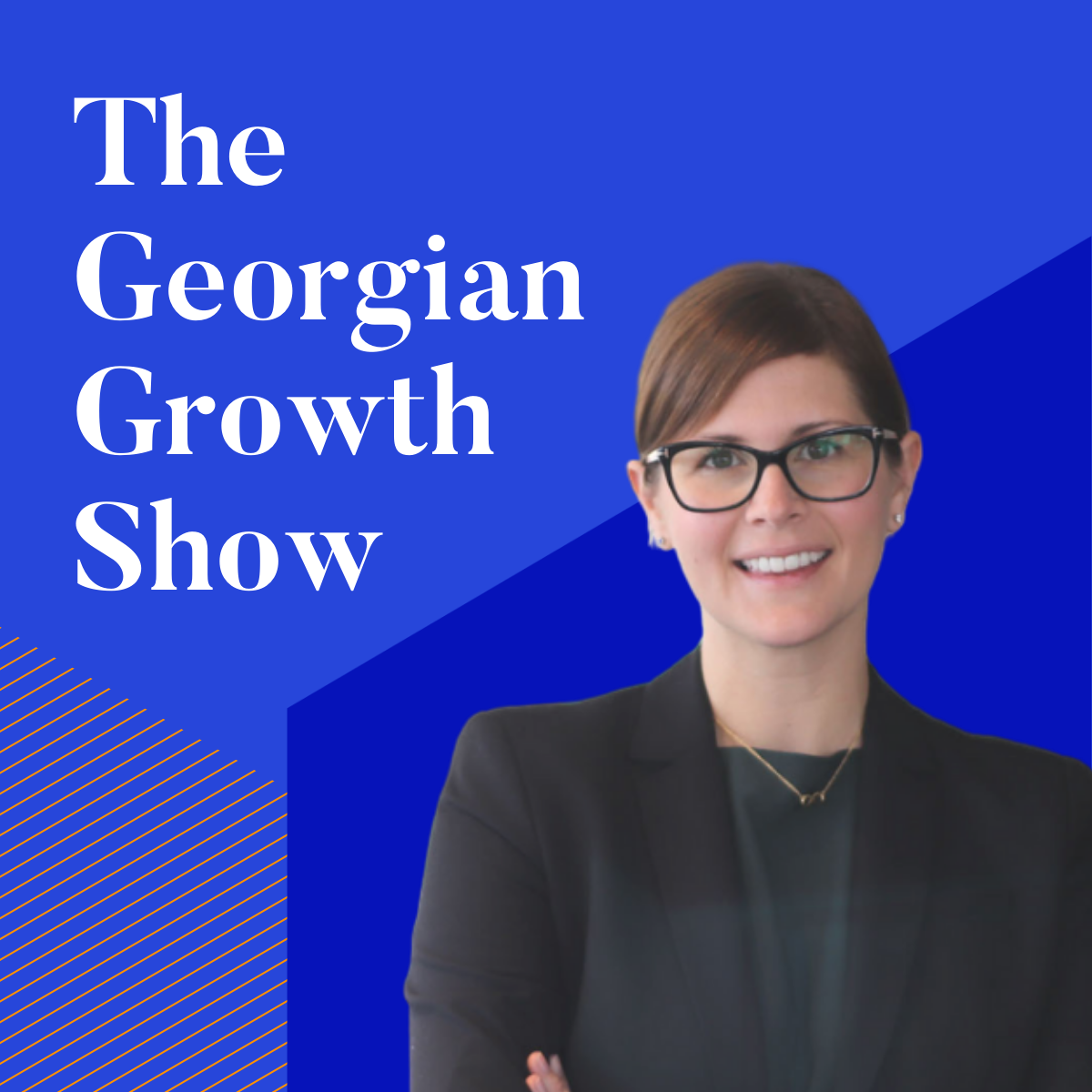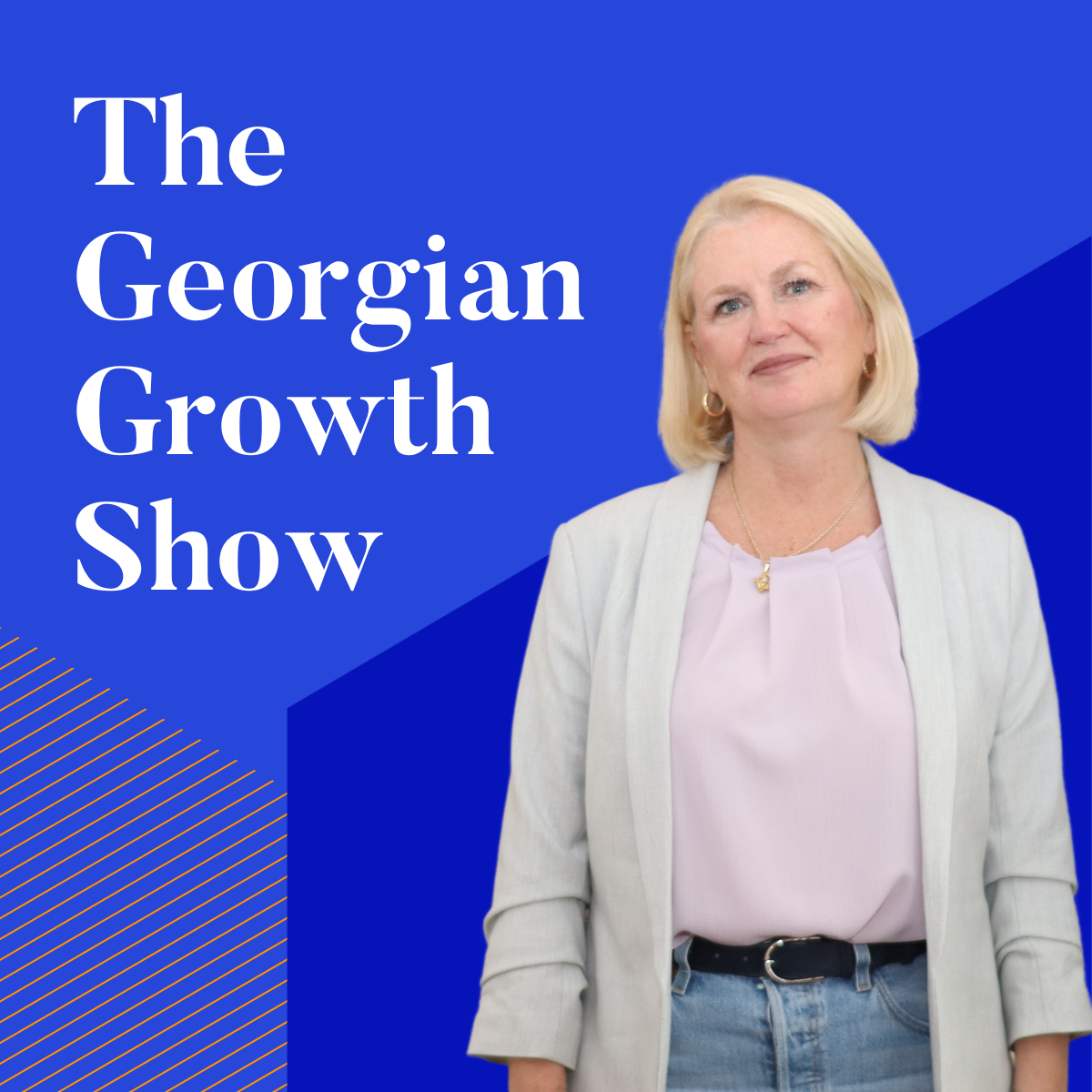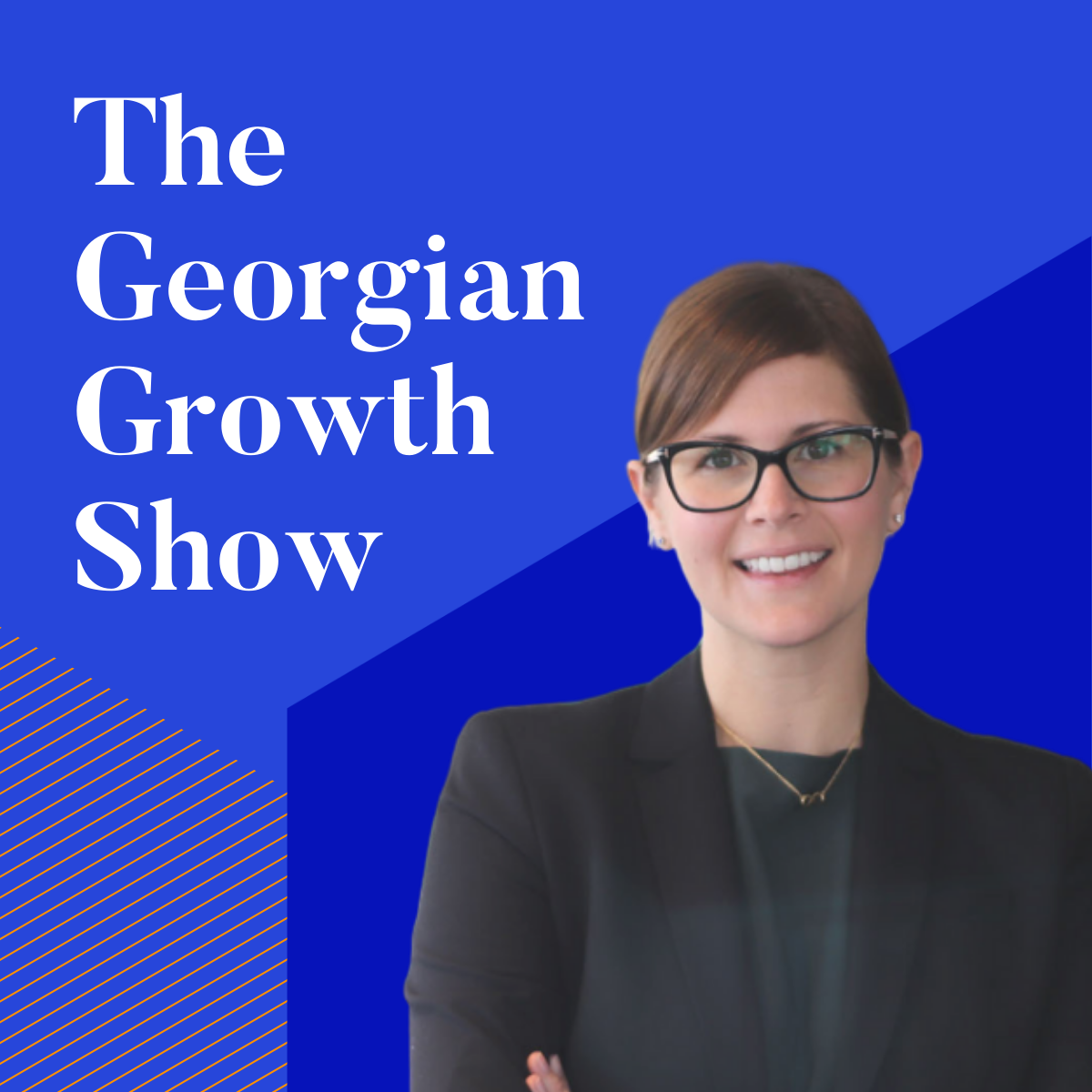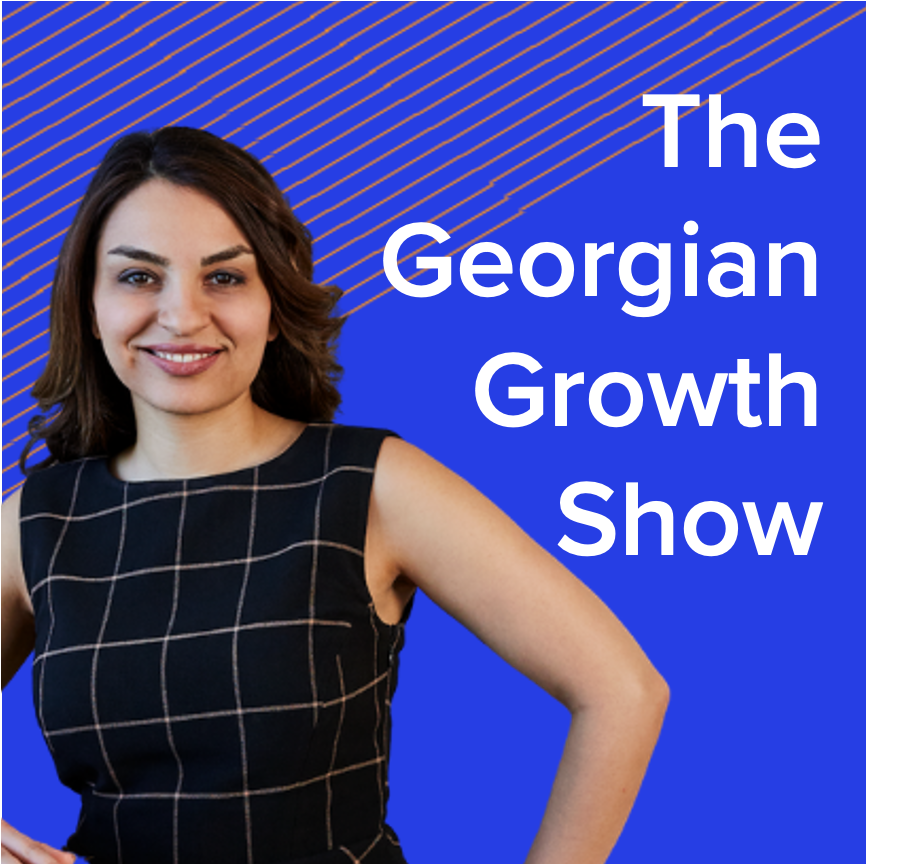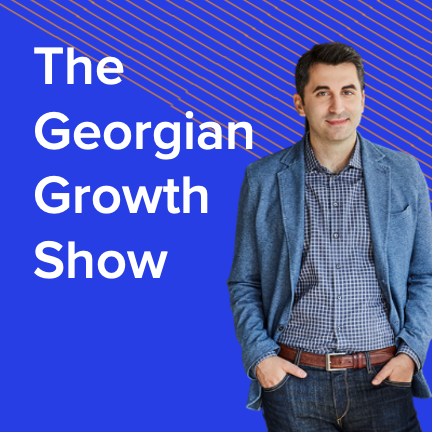Georgian's Christen Daniels on Getting Your Company Ready for a Successful Exit
- 0.5
- 1
- 1.25
- 1.5
- 1.75
- 2
Hey everyone, welcome to another Georgian top three Evan Lewis here. And today I'm joined by Kristen Daniels who's Georgians VP corporate development. And today we're talking about the top three questions to consider to get your company ready for a successful exit. So Kristen the end game for all of our companies is typically off an exit either privately or by an IPO. But if you're a CEO, you may not have gone through the exit process before in some cases, you know, it's a multiple times CEO or you've sold your company but and in any case getting to a successful exit can be challenging in each company each situation is unique. So would love if you could just share a little bit of your background Your Role at Georgian and how you think about supporting our companies on Corp Dev and driving towards a successful exit.
Awesome. Thank 7. I joined Georgian last September. So September of 2019 from open text Corporation where I led the corporate development team and and thinking about everything from sourcing deals through to evaluating deals and building the models around a business case actually executing on a traction and then ultimately for the first year post closing in terms of integration planning an actual integration and so from that experience, I really developed a buyer's mindset in particularly around fires mindset as we think about technology companies prior to my time at OpenText. I was in private practice as a lawyer don't hold that against me, please and so I saw transactions wage from a lot of different angles as an external advisor, but it's on the buy side and on the sell-side public transactions private transactions Corporate Finance transactions of all different birth.
Nature's including Bank financing. So I have been around all different types of transactions and all different types of ways and really bring that experience to our portfolio companies as they think about how to best prepare themselves whether it is the exit transaction that they're thinking about whether it is a follow-on financing round and they're thinking about their narratives might be interested investors or Partners the whether it is a portfolio can be thinking about doing their own m&a and trying to build a strategy around buy versus build analysis and filling product a position or thinking about inorganic growth strategies.
And and part of that is also thinking about relationships that matter whether it's a partner or a strategic Alliance or building a long-term relationship with a future perspective acquirer building a relationship with a p firm building relationship with investment Banks or law firms that can support you and provide Market insights through that. Is your thinking about what your next strategic step is dead? And I would say overarching all of that. My goal is to really support our companies as they think about value creation and strategic planning because of course that is the underpinning of all of this having any kind of successful following fundraising or any kind of successful exit transaction regardless of the nature.
Amazing, you are sort of like a secret weapon. I'm sure for a lot of our CEO. So that's really really fantastic and appreciate the overview. So now let's dig into the top three. So if I'm a CEO and I'm thinking about how I can best prepare myself for an exit, you know, obviously, we want it to be successful. Where do I start? What are the sort of these three core pillars that you think about and first of all talk about the ecosystem would love to dive into your thoughts on that and and how you coach our companies to think about the ecosystem that they plan. So I think it's really hard sometimes for our operators who are very busy in the day-to-day to take a step back and think about what's going on around them and what that means ultimately for their business and that's why I really encourage this practice is this broader ecosystem View and it can be difficult. There's so much information out there from so many different sources. So trying to stay on top of who bought who who invest job.
And who which public companies have announced particular strategies with respect to a particular area that could impact your space is very difficult to stay kind of in the Nam. And so taking a step back at a periodic basis and really Gathering that market intelligence and thinking about where you sit in that ecosystem. I think it's critically important and one of the last things we'll talk about Evan is narrative. But this is a feeder and a foundation for both strategic planning growth planning and in narrative having that awareness of what your Niche position is can really drive the Strategic plans. So who are the other players what differentiates you from those players what's happening at the purchase level when one of your customers is making that purchase decision who are the other options that are evaluating? Who are you competing against for Budget dollars? What is their strategies?
If it's known when you take a look at their website, what kinds of things are they emphasizing and our large cap tech companies focused on your space if they're not ask the question of why not. Is it something that you see on their roadmap based on moves that they've made either Investments or Acquisitions? They've made things that they said publicly because of course the Dynamics of a space change very quickly. Once you have an 800-pound gorilla that is turned their sights to it. I'd like to think of it in 5 kind of chunks in the first chunk which we sort of alluded to but think about the purchase level is really your competitors. Who do you see every day and I think companies usually have a pretty good understanding of who their core competitors are and what those core competitors are doing the next Song of Peace. I would look at is the indirect competitors what is happening with people who are solving a different business problem, but selling into the same customers because they may be part of that budget allocation. Yep.
Question and you know, there's a real question around competitive mode as to whether or not you are able to prevent them from coming into your space. So having an interview on kind of what they're doing what their strategies are ther solving and approaching business problems. I think can be really informative. It also can inform future opportunity for you. Is there an opportunity for you to move into their space is that an expansion opportunities and this exact same thing applies as we think about adjacencies so somebody using a different technology to solve a similar business problem maybe with the same type of customers but is that off either a threat or an opportunity for your business as well? What are those companies doing? How are they tackling those business problems? What kind of Technology are they using and and again just building that holistic view of the world around you the other two pieces. I like to look at our your light has customers. So there's really influential customers that you are targeting that have a lot of purchasing power and can influence demand in this space dead.
What are they prioritizing how are they allocating their budget dollars? What are they asking you for and being able to kind of unlock those things and really take a step back and take stock of them can help you create a scalable and repeatable kind of go to market engine. And then the last piece as we sort of touched on already is really what is large cap Tech doing so is it the sales force oracle's sap apples, you know, IBM name your large-cap tech company. Are they focused on your space? Are they solving a similar problem in a different way? Have they intentionally did she said not to focus on there on that on your space and thereby created a potential opportunity for acquisition in the future. So really thinking about what they're doing and how they're focused on this area so that you can start online in your strategy both from a relationship building perspective potentially a partnership perspective if you want to see if there's an opportunity to work together and also just thinking about Cong
Have the space might involve and and make sure you're not blindsided by somebody making a big move and capturing market share really quickly amazing. Okay, perfect. So that makes a ton of sense to you've looking at the ecosystem. You've almost built your radar system. If you will, you've identified, you know, some key relationships and different Pockets or sectors that might be key to build and I love what you said at the song about you coming in with the buyer's mindset. So now if we say, okay you looked at the ecosystem and you've identified a few areas that you may want to play and focus your efforts. Now, let's think about based on where you've identified some potential opportunities. What are the people who hold the keys and hold the budgets in those seats? What are they thinking and what will they value? So you talked a lot with our companies about value drivers if you could shed a little bit more light on how you think about that and why you feel it's important. Absolutely. I mean, it goes directly hand-in-hand with the ecosystem piece. I think of the ecosystem
And pieces being the external kind of self-assessment about where you fit and where there is a market Niche and the value drivers piece is really doing that internal self-assessment and saying where are we strong wrong? And what is a third party who comes and looks at our business, you know completely blind going to see as our strengths and how do we then and we'll get to this is Earth kind of third faction. How do we then turn that into a powerful narrative combining those two things together. So I like to think of them as building blocks or building blocks to value and and you can conceptualize them as a pyramid off. So the first kind of building block is your what we call coremetrics. This is very objective financially driven. What are you measuring and what is it saying your business and this is a gating item frankly for anyone who's going to invest in your company in the future for anyone who's going to potentially acquire your company in the future. If you're thinking about IP owing, you know dead.
Tells a story about your business and so you know, what is the momentum? What is your growth look like? I'm sure everyone at all all the portfolio companies in share of sick of hearing us talk about a symetrix. It's a litmus test. It's like going to the doctor and the doctor is looking at you and kind of assessing your symptoms. These coremetrics are basically those evidentiary symptoms of what's happening in the business and there's a really strong and positive and then it's going to build a very credible foundation for some very strong competitive advantages when we get into the next set of strategic drivers if there are weaknesses and then that you need to have a credible story about what a transformation the company is going through or what is happening that's leading to some of those weaknesses each other part of this though. I think it's really important as choosing the right metrics. What can you measure the tells the story that you want to tell about your business now, that doesn't mean that you get off.
Our groceries or they get to ignore, you know your cash burn or questions about profitability, but there may be other things that tell a more credible and stronger story about Fitness that you're building. And so I think taking a step back and making a really proactive effort to start measuring the right things along side the kind of expected things will can be really beneficial. You know, is there something happy, you know, if you segment your customer base does that tell the different retention story as an example? Because again, this is a litmus test. This is a gating item anybody who's coming in to look at your business from the outside is going to very first thing ask you for financials and asked to do a health check on the business based on what this financial metronome telling them. The next piece really gets into what I like to call this secret sauce. It's the Strategic drivers. It's thinking about all the things that make your business special and birth.
Things that differentiate you from your competitors. So, you know, do you have a history of innovation you have really strong product that's difficult to replicate. That's highly defensible owned by you. How is your product Market fed thinking about your ability to scale. Do you have world-class talent that makes you special. Do you have that strong customer relationships and relationships with your partners with your customers say about you? What feedback are they giving you about how they're making the purchase decision? How are you building relationships with partners that are getting value to your business demonstrably value to your business and then really thinking about the customer proposition. How do you generate value for your customers? What is that Roi model? How long does it take for customers to see value? We know that all of these things really tie back to how effective and differentiated your businesses culture is another way that we can see a strong differentiation log.
Have a strong mission and vision and does that permeate everything you do as a company is everybody lined in the boat to gather a rowing in the same direction towards the same goal. And and then the last component there that we could look at as a heading is Market recognition. Do you have an analyst relations program are you recognized is a brand awareness. If someone says, you know, oh, I'm looking in this space and you know, well, they associate your name with that particular business problem or that particular solution and I think it's easy to underestimate particularly in the early days of a company how powerful that can be and even if it doesn't necessarily impact your day-to-day just that brand awareness that brand recognition showing up and Gartner or other kind of analyst table can be a very very powerful tool and can drive value because it gets you into the customer mind.
Super interesting, you know, there's seems to be a lot of parallels not surprisingly between fundraising, you know, if you're looking to raise your next essay series a or series B, and then also the narrative that you're looking to craft when you're selling your company. So definitely some good parallels there for the listeners. So now you've looked at the external ecosystem. You've looked at your internal value drivers and considered off from a buyer's mindset. When if you think back to your time doing Acquisitions and stuff would love to you speak from experience on what makes a great narrative poem or a founder and CEO who's trying to sell their business and specifically trying to build trust with the counterparty. How do you tie all those things together in a really cohesive fashion? Well, I would say there's a there's a Thursday bucket actually in the building blocks to Value which is about premium opportunities. And that's really about telling the Future Vision and future story of the company.
And that's where you get into the narrative piece. So you've got your first building block around the core metrics. You've got your second building block around your strategic drivers those two things have to be totally harmonious and Faith together. If you want to tell a story in a narrative that says you have really strong product Market fit in your retention rates stink. It's just not credible similarly as you go into the third bucket around kind of Premium opportunities. Those are the really high growth high-value things that a potential buyer or investor is going to place a premium valuation on and say okay. I got it. You're really strong in these areas today York or metrics set that up. But now I'm understanding your future Vision. I'm understanding that you have this strong data mode and although you haven't taken steps yet to necessarily. Monocoque. Is that data or figure out what you could do as a second extrapolation with that data be on what you do today? I see the value in that data or I see that you have the potential to 2 a.m.
Too Cute on an m&a strategy and build a bigger business and consolidate a space or I see the opportunity for you know Geographic expansion that Future Vision in that narrative is only credible. If it is built on the back of the credibility of the first two components of being able to tell a really cohesive story around the core metrics and around this project drivers and that goes exactly to what you suggested. I mean about building trust and so that's why it's really important when we kind of go back into those initial buckets. What will be credible
What can you measure what can you put forward that is objective evidence of the subjective story that you want to tell in the vision that you want to sell off. If you want to sell a vision that says we are the next Amazon.
You know nobody is going to find that credible unless there's a really strong incredible story around how you built that Vision. So if you're saying, you know today we're at you know company that does ten million dollars on Revenue, but we see this incredible opportunity to scale and and we see that we are only today operating in North America, but we could be happening globally as you think about the premium opportunities and that extra lever on value. Okay. Well tell me how you've built a talent plan. Tell me how you built a go-to-market plan. What how are you going to select markets like going to take it dumps you back every time into the Strategic drivers and how you built an infrastructure Foundation inside the company to be able to make that future revisions sound credible in marrying those things together with the ecosystem piece. Are you telling the same stories everybody else?
You've now nailed what makes you special what you're good at where you have strengths where you have opportunities, you demonstrated a level of self-awareness You've Got The credibility because everything kind of Mary's together, you know, is it distinct is it as is it truly a differentiated story and that's where it kind of marrying it together with the ecosystem piece comes in and if it's not, you know, you need to be able to articulate a plan to go out and and credibly be the number one or number two player in a space. How are you going to dominate the space? How have you fit that pulls together to make that realistic? It's all about telling a credible story and I think what people underestimate is how much preparation you need to do in advance to be able to do them.
First of all who is going to be the person who's going to drive the narrative in an actual interaction and have they've gone deep on all these areas. Have you thought about the types of questions that you're going to get? Have you done that preparation, you know, I've heard time and time again from some of our portfolio companies. I wish that I had done more rehearsal. I wish I had done more to say you practice delivering that narrative and I'd done more to get external feedback on the narrative. It's it's that self-awareness combined with combined with that external view mirror those thoughts together and pressure test it practice and you have people who aren't close to your business. And you know, that's something obviously I spend a lot of time doing and we've lots of people at Georgian who are available to do that may also can connect companies with investment banks have them pitch the Investment Bank. They they hear these pitches all day long. They can tell you whether or not it's going to resonate and they'll poke holes.
And you want that because the best preparation is really anticipating the kind of questions. You're going to get where somebody who doesn't know your business might see a week says and being able to hit those kind of head on and be prepared with responses again that you can back up with metrics and and really having taken the time and energy would give that a lot of thought before you're in front of somebody for the first time. Wow, that is an amazing summary and I think given all the details and intricacies there. I think it just showcases the importance and the value of having someone like yourself with the wealth of experience that you have to sort of be a strategic Ally and a guide for CEOs and executive teams through this process. So cross has been amazing. Thank you so much for sharing all this and that's it from us. See you guys next time. Thank 7.
DESCRIPTION
On this episode of the Georgian Growth Show Christen Daniels talks about Georgian’s value creation framework and how it helps founders prepare themselves for a successful exit.
- How can companies think about the ecosystem they play in and how can that help them to identify strategic opportunities?
- What are value drivers and why are they important to thinking with a buyer’s mindset?
- What makes a great narrative for a founder who’s trying to sell their business and specifically trying to build trust with the counterparty?
